 Petzlover
Petzlover Cesky Terrier is originated from Czech Republic but Norwich Terrier is originated from United Kingdom. Both Cesky Terrier and Norwich Terrier are having almost same height. Both Cesky Terrier and Norwich Terrier are having almost same weight. Both Cesky Terrier and Norwich Terrier has almost same life span. Both Cesky Terrier and Norwich Terrier has almost same litter size. Both Cesky Terrier and Norwich Terrier requires Moderate Maintenance.
Cesky Terrier is originated from Czech Republic but Norwich Terrier is originated from United Kingdom. Both Cesky Terrier and Norwich Terrier are having almost same height. Both Cesky Terrier and Norwich Terrier are having almost same weight. Both Cesky Terrier and Norwich Terrier has almost same life span. Both Cesky Terrier and Norwich Terrier has almost same litter size. Both Cesky Terrier and Norwich Terrier requires Moderate Maintenance.
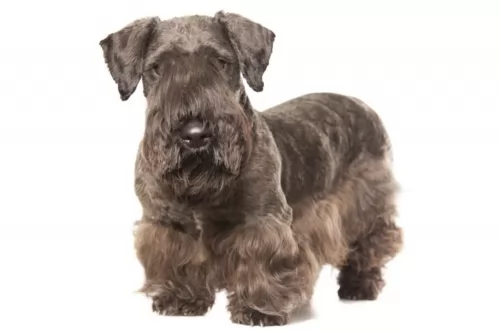 Known as the Bohemian Terrier and looking similar to a Scottish Terrier dog, the Cesky Terrier is a dog breed that has been created by Frantisek Horak, in the Czech Republic.
Known as the Bohemian Terrier and looking similar to a Scottish Terrier dog, the Cesky Terrier is a dog breed that has been created by Frantisek Horak, in the Czech Republic.
Horak wanted to breed a type of hunting dog, and in 1949, using both the Scottish Terrier ad the Sealyham Terrier, he bred the two, creating a new breed that would hopefully be a stronger hunting dog.
The Cesky Terrier was shown for the first time in 1959 and was recognized by the Federation Cynologique Internationale in 1963 and in 1993 by the United Kennel Club. It’s a rare dog this, and is the national dog of the Czech Republic.
 Hailing from the United Kingdom and once known as the Cantab Terrier, the Norwich Terrier may be small, but he was bred to hunt rodents.
Hailing from the United Kingdom and once known as the Cantab Terrier, the Norwich Terrier may be small, but he was bred to hunt rodents.
Closely related to the Norfolk Terrier, he is an old dog breed, having existed since the 19th century. Its understandable that such a dog would also be the mascot of Cambridge students.
It is believed that he was bred from Irish Terriers and some believe it came from the Trumpington Terrier, an extinct breed.
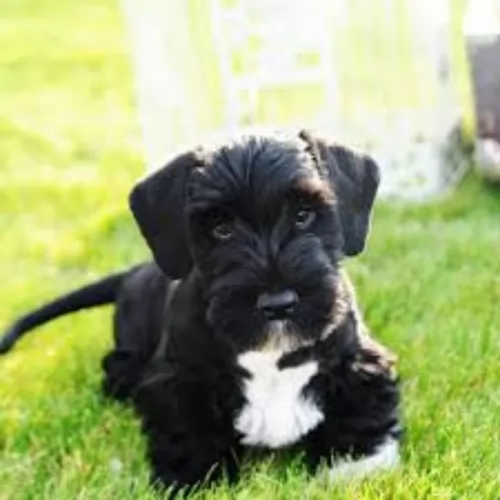 The Cesky Terrer is a longish dog, much like the Scottie and he also has short legs. He is roughly 29ck in height at the withers, is about 43cm in length and weighs anything from 5 to 10kg.
The Cesky Terrer is a longish dog, much like the Scottie and he also has short legs. He is roughly 29ck in height at the withers, is about 43cm in length and weighs anything from 5 to 10kg.
The coat of this dog is long, silky and quite wavy and can be in a number of different shades of gray or a light brown color. Puppies are born black. The soft coat can be kept groomed by clippers or you can take him to have his coat professionally trimmed.
This dog breed has natural drop ears, unlike the Scottie which has erect ears. The tail length is 18-20 cm and low set.
A loyal, quiet and loving family dog, the Cesky Terrier will get on well with children in the home and he is also friendly with other dogs. Just like with any other dog, it will be important to socialize the dog breed at an early age as then he becomes obedient, smart and relaxed. He is a breed which is also easy to train. He also makes a good watchdog.
 As one of the smallest terriers, the Norwich Terrier is also quite a rare dog breed. He is such a cute little dog this, weighing just 5 to 5.5kg and standing at between 23–25cm at the withers.
As one of the smallest terriers, the Norwich Terrier is also quite a rare dog breed. He is such a cute little dog this, weighing just 5 to 5.5kg and standing at between 23–25cm at the withers.
He has erect ears and a double coat that can be wheaten, red, tan, black and tan and grizzle. The tail has always been docked previously, giving the dog an attractive, compact look but these days it is left long. These dogs have small litters – usually between one and three puppies.
The Norwich Terrier is a friendly little dog and is essentially a companion to humans. Just because he is small, doesn’t mean he is frail and helpless. He is a feisty, hardy dog with a brave heart and just loves his human family.
The Norwich Terrier is also strong willed and assertive and it can be of benefit to have him trained and socialized. He is energetic too, so he’ll expect a walk each day, a run in the park and ball games. They also make excellent little watchdogs, at least warning you of approaching strangers.
They are good with kids if the children have been taught to be kind and gentle with animals, and they get on well with other pets in the home too.
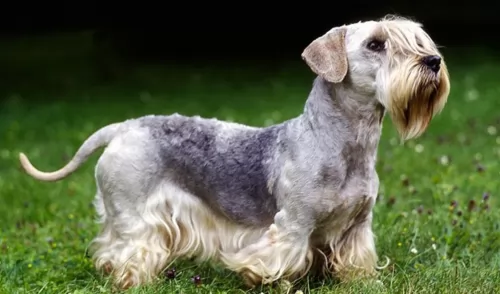 The Cesky Terrier isn’t a small-dog yapper and he will adapt to life in the city or the country. He is a small dog, but he is feisty and sporty and will willingly join you with your jogging or when you go on a walk.
The Cesky Terrier isn’t a small-dog yapper and he will adapt to life in the city or the country. He is a small dog, but he is feisty and sporty and will willingly join you with your jogging or when you go on a walk.
He is intelligent and playful and when you add in characteristics such as being courageous, loving, loyal and feisty, you can see that the Cesky Terrier is guaranteed to make a super family pet.
 The Norwich Terrier is guaranteed to make you a splendid pet as he is active, friendly, social and intelligent, as well as being loving and loyal.
The Norwich Terrier is guaranteed to make you a splendid pet as he is active, friendly, social and intelligent, as well as being loving and loyal.
You can rely on this little canine friend to want to be with you and take part in all your activities. He won’t do well if you put him in the back yard and forget about him, as he craves human company.
When you do whatever it takes to ensure your Norwich Terrier is an active and treasured member of your family, you’ll be rewarded with a wonderful pet and companion for many years.
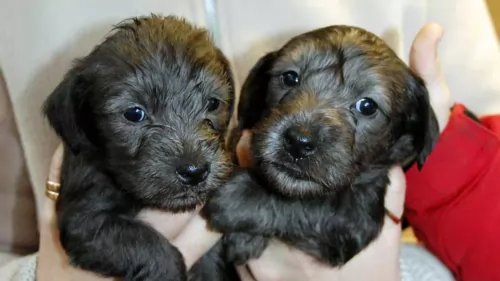 The Cesky Terrier is generally a healthy dog, but this breed sometimes suffers from common dog ailments that other breeds also have to contend with.
The Cesky Terrier is generally a healthy dog, but this breed sometimes suffers from common dog ailments that other breeds also have to contend with.
Eye disorders, ear infections, pancreatitis, hip dysplasia and weight gain are just some health issues you might need to be aware of.
Remember that if you want to promote a healthier dog, feeding him a quality diet and taking him immediately to the vet when you suspect a problem can keep him free from common dog illnesses.
Pancreatitis for instances develops when the pancreas becomes inflamed, and this can be brought on by allowing your pet to become obese. There are other reasons for pancreatitis too such as infection. You will see diarrhea, fever and vomiting with your pet as well as discomfort from abdominal pain. It’s a disease which affects smaller dogs more often than larger breeds.
 The lifespan of the Norwich Terrier is between 11 and 13 years and he is considered a healthy breed. Every dog owner needs to know that there are some health issues which will require veterinary intervention.
The lifespan of the Norwich Terrier is between 11 and 13 years and he is considered a healthy breed. Every dog owner needs to know that there are some health issues which will require veterinary intervention.
Cataracts, an eye disease may be inherited and it is where the eye gets a cloudy look. Other illnesses to look out for include Patellar Luxation, a problem where the dog's kneecap is dislocated from its normal anatomic position. The condition is fairly common in small dog breeds.
Check problems with the teeth - more specifically incorrect bites because of how the teeth meet.
Sometimes these dogs can battle with breathing problems. Upper Airway Syndrome is when the dogs breathing is raspy.
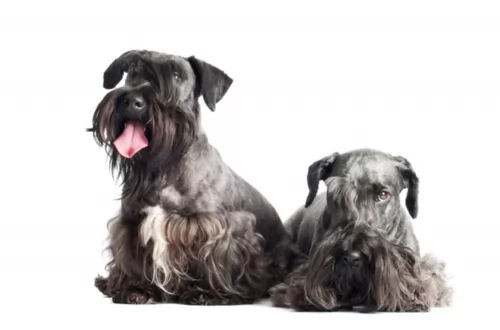 Cesky Terriers may well be a little bit less active and quieter than other terriers, but they will still need a good dose of exercise. He loves to dig, and if he is bored and doesn’t have a plenty of exercise and games, he will want to dig more and cause the owner a lot of frustration. Take him for daily walks and give him some ball games in the garden.
Cesky Terriers may well be a little bit less active and quieter than other terriers, but they will still need a good dose of exercise. He loves to dig, and if he is bored and doesn’t have a plenty of exercise and games, he will want to dig more and cause the owner a lot of frustration. Take him for daily walks and give him some ball games in the garden.
Cesky Terriers will need brushing down at least twice a week and their coats will need to be trimmed into shape every 8 to 10 weeks or so. You’ll also need to check excess hair inside the ears.
As with any dog breed, you will need to check on his nails so that they don’t grow too long and also brush his teeth 2 or 3 times a week to avoid dental disease.
 Norwich Terriers are active little dogs and were bred to be working dogs – hunting vermin but also accompanying their owners on horseback. You can see that he has been used to an active lifestyle and will require a daily walk and games. He will also want toys which can keep him occupied in between his active sessions.
Norwich Terriers are active little dogs and were bred to be working dogs – hunting vermin but also accompanying their owners on horseback. You can see that he has been used to an active lifestyle and will require a daily walk and games. He will also want toys which can keep him occupied in between his active sessions.
His size allows him to adapt easily to life in the city or the countryside but wherever he is, he will need a good dose of exercise.
The double coated Norwich Terrier, with his wiry topcoat and soft undercoat will need to be brushed twice a week to avoid matting. This is a dog that will require stripping of the old hairs from the coat. This is a process which ensures the coat retaining its texture and appearance.
If you’re in any kind of doubt, speak to a professional groomer. As it is, many owners of this dog who don’t show their dogs, have them professionally groomed.
Always choose a high-quality dry food. Try and avoid those commercially manufactured foods which contain wheat and gluten and lots of preservatives and colorants. These can affect your pet’s health negatively.
Choose quality foods where protein is at the top of the list of ingredients. Give your pet some homemade food too, keeping his diet as simple and nutritious as possible. Some boiled chicken chopped up together with brown rice or pasta and some cooked vegetables such as carrots, sweet potatoes and spinach will do him the world of good.
A tiny bit of raw meat every once and again will be a good thing. Avoid foods such as chocolates, ice-cream, popcorn, onions and spicy foods as these will upset your pet’s digestive system.
Provide him with a warm, dry, soft bed. If he is outside for any length of time, make sure he has a sheltered area away from the sun and rain.